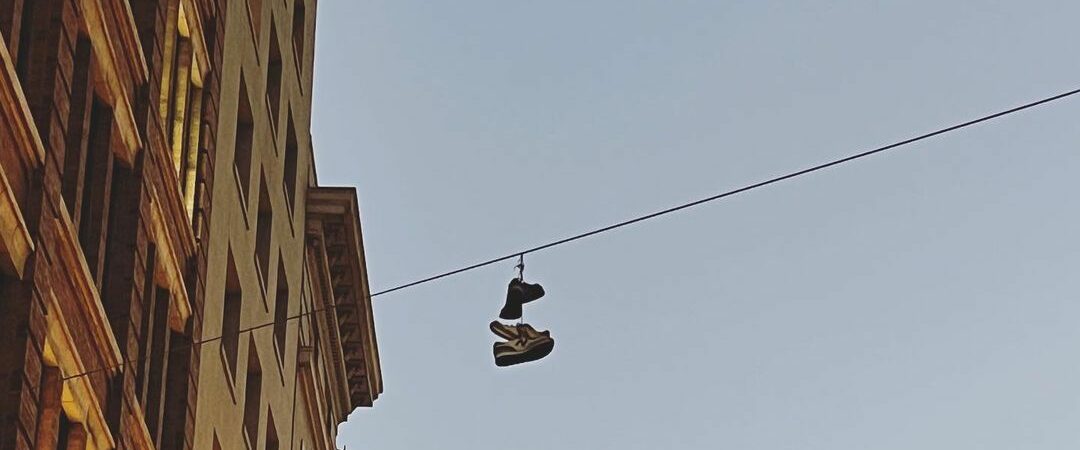One of the first shows we did as Euphonic Productions was Derek Bailey, he was awesome. Sadly he died Christmas Day.
Derek Bailey, 75, Guitarist and Master of Improvisation, Dies
By BEN RATLIFF
Derek Bailey, the English guitarist who helped to form a fractured style and a cohesive philosophy for European free improvisation, died at his home in London on Sunday. He was 75.
The cause was complications of a motor neuron disease, said Martin Davidson, a record producer and friend.
Mr. Bailey explained his art unpretentiously, often simply as a matter of personal choice, but his style of playing guitar was a kind of reaction against all systems in music. By the 1970’s it had become a system unto itself – a virtuosic, physical one, of clicks and chimes and harmonics and aggressive bursts of volume, arrhythmic and nonlinear but still coherent and powerful.
Despite his roots in jazz and his professional relationships with many jazz musicians – he played with the drummers Tony Williams and Paul Motian, the saxophonist Steve Lacy and the guitarist Pat Metheny – Mr. Bailey was not playing jazz, nor pretending to. He often referred to his work as “nonidiomatic improvising,” meaning that it did not refer to any particular idiom or style. Over time it became its own idiom, and he sought to perform with artists from nonimprovising traditions, like the drum-and-bass producer DJ Ninj and the Chinese pipa player Min Xiao-Fen, and even with nonmusicians, like the Butoh dancer Min Tanaka and the tap dancer Will Gaines.
Born in Sheffield, Yorkshire, Mr. Bailey grew up in a working-class family, the son of a barber. An admirer of the jazz guitarists Charlie Christian and Oscar Moore, he started guitar lessons as a boy, inspired partly by an uncle who played guitar and worked in a music shop.
In 1950, after brief service in the British Navy, he began work as a professional musician, playing jazz in pubs and restaurants in Sheffield. He often worked in dance halls, and one of his jobs was in the pit band for Morecambe and Wise, the popular English comedy team. More and more, he said later in interviews, he would begin to practice his own ideas on the bandstand, quietly, so the rest of the band could not hear.
By the mid-1960’s, having become successful enough as a commercial musician to buy a house in Manchester, Mr. Bailey had met the bassist Gavin Bryars and the drummer Tony Oxley. Together they formed the Joseph Holbrooke Trio, named after a British composer who had died a few years earlier. They began playing a freer kind of jazz, sometimes basing it on the music of John Coltrane’s quartet and Bill Evans’s trio but also trying to upend jazz conventions.
Mr. Bailey at the time was heavily influenced by Anton Webern and wrote pieces for solo guitar in Webern’s style. He soon abandoned composition and began practicing smaller units of sounds and notes, which he would fold into improvisations.
After about 1967, Mr. Bailey did not compose in the traditional sense; he only improvised from scratch, using all the tiny bits and phrases that he had been working on. He became involved in an improvising group, the Spontaneous Music Ensemble, but after that his music became more concentrated and personal. He performed and recorded continuously, making more than 100 albums, alone, in duets or in the various assemblages of musicians that he finally organized into a regular event, Company, held in various cities from 1976 to 2002.
In 1970 he helped start a record label, Incus, with the saxophonist Evan Parker, one of his frequent musical colleagues until the mid-1980’s. Between Incus, which released 30 of his own recordings and still functions, and his regular Company performances, Mr. Bailey kept busy through the 1990’s, playing with seemingly every major and minor figure in the world of experimental improvised music.
In 1980 he wrote an influential book, “Improvisation: Its Nature and Practice in Music,” exploring improvisation in Indian music, flamenco, jazz, rock and Baroque music. The book was adapted as a television series for England’s Channel Four in 1992.
Several years ago Mr. Bailey and his wife, Karen Brookman, began living part time in Barcelona, Spain. They moved after Mr. Bailey started having problems with his hands, a development he made public earlier this year with his final record, “Carpal Tunnel.”
He is survived by Ms. Brookman, of London and Barcelona, and a son, Simon Bailey, of San Diego.
Some of Mr. Bailey’s most celebrated albums were made in the last decade for Avant and Tzadik, the New York saxophonist John Zorn’s labels. One of them was entirely counterintuitive for a musician who became famous for playing no written music: called “Ballads,” it consisted entirely of ballads favored by jazz musicians, played in bursts of suggestion, in his craggy, unsentimental, highly personal style.
